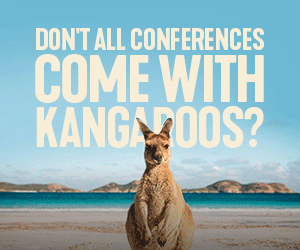Can a Regional Association go Global?

Going Global
It is easy to assume that a regional association wishes to stay in its own back yard – a European Association has plenty of countries from which to choose, as does Asia, or any other territory. But with potential saturation of the local markets, alongside increased competition from other national or regional associations in the same discipline, there is a strong argument for taking a regional association out into the wider world. Author: Ben Hainsworth, Executive Director, K.I.T. Group GmbH, IAPCO Member
Arguments for reaching out to a more global market include an increased demand for international organisation and content together with a drive for sustainable growth and diversification. There are opportunities for boosting membership, for broadening the brand recognition as well as benefiting from increased revenues from industry. But perhaps the greatest benefit is the gain from collaboration in research and development, furthering the advancement of the discipline.
Of course there are hazards in taking such a step. A lack of knowledge of the marketplace gives rise to a need for risk management, to changing expectations and an increased strain on the organisation of the event. Cultural and business practices, as well as local authorisations and regulatory issues, all play a part in the potential burden.
Case Study
K.I.T. Group were instrumental in guiding one of their European clients into going global, into Asia. The objectives of the ESICM [European Society of Intensive Care Medicine] were to increase non-European attendance at their events, and to grow non-European ESICM membership. This was to meet the demand for ESICM science outside of Europe and to develop international relations and visibility. Such objectives could be mirrored by many regional associations.
The initial planning concept was to introduce a pilot project of an independent ESICM event outside of Europe. A collaborative scientific approach would be developed, focussing on just one region, in this case Asia. A Core PCO, IAPCO member K.I.T. Group, was engaged. ESICM:EUROASIA was born.
Asia was selected due to the marketplace of the anticipated 60% of the world’s population being within the Asia catchment area within a short space of time. Ultimately the Bid was won by Hong Kong, due to a number of factors including their high quality medical and academic environment, their international convenience and infrastructure as well as value for money.
It was not all plain sailing, however, there were challenges to be overcome, such as tough negotiating with the venue, late commitments and complex industry relations, all to be resolved in a short lead time.
ESICM:EUROASIA proved to be a success! 50 countries were represented, 73% from APAC. Local associations endorsed the event, along with industry support. There was a reciprocal and enriching learning experience with a newly extended ESICM family of science, education and research.
And the legacy? ESICM:EUROASIA will be repeated and consolidated in 2018, with growth and development planned for 2019. Thereafter new regions will be explored and the event replicated.
Can a regional Association go Global?
Yes, it can, but not without strategy and sensitivity, clear objectives, and an open-minded approach that meets the opportunity with expertise and a business attitude. Globalisation is today’s world, and we will no doubt see more regional associations taking the step to Go Global!
This article was provided by the International Association of Professional Congress Organisers, authors Ben Hainsworth, Executive Director, K.I.T. Group GmbH, IAPCO Member, and Sarah Storie-Pugh, Executive Director, IAPCO. IAPCO represents today 117 companies comprised of professional congress organisers,meeting planners and managers of international and national congresses, conventions and special events from 41 countries.
Other Articles
About Us
Supported by the Union of International Associations (UIA), the International Association of Professional Congress Organisers (IAPCO) and the Interel Group, the global public affairs and association management consultancy, Headquarters Magazines serve the needs of international associations organising worldwide congresses.
















